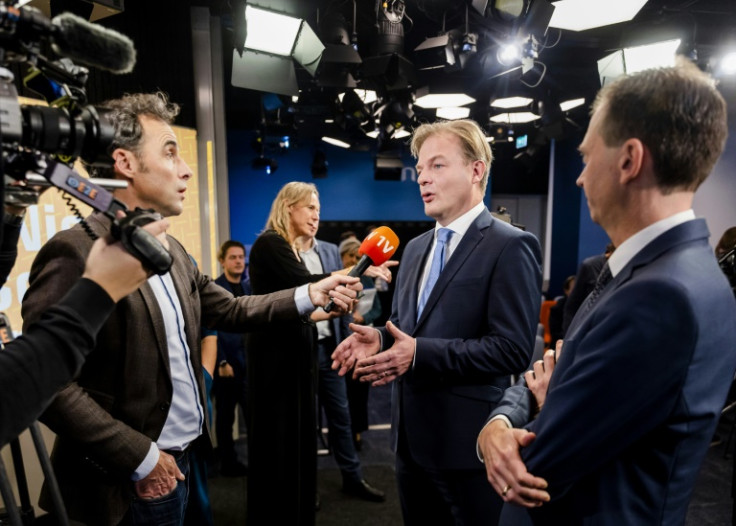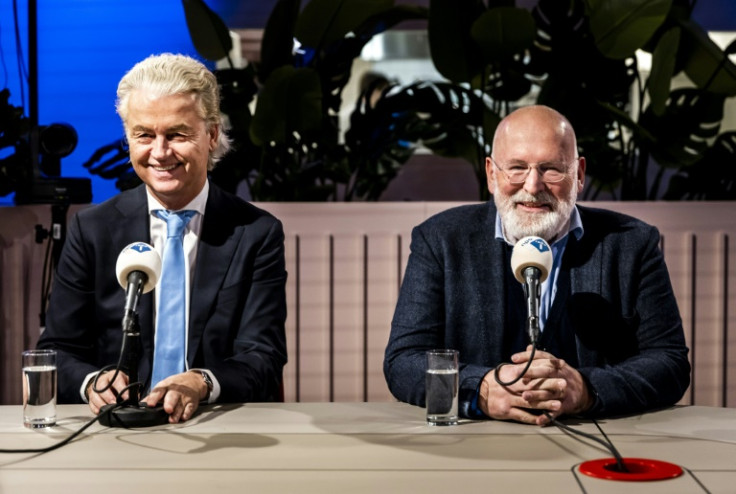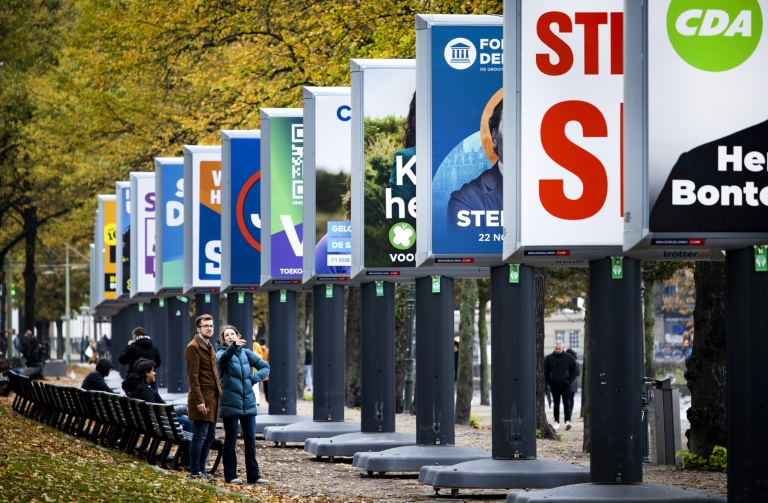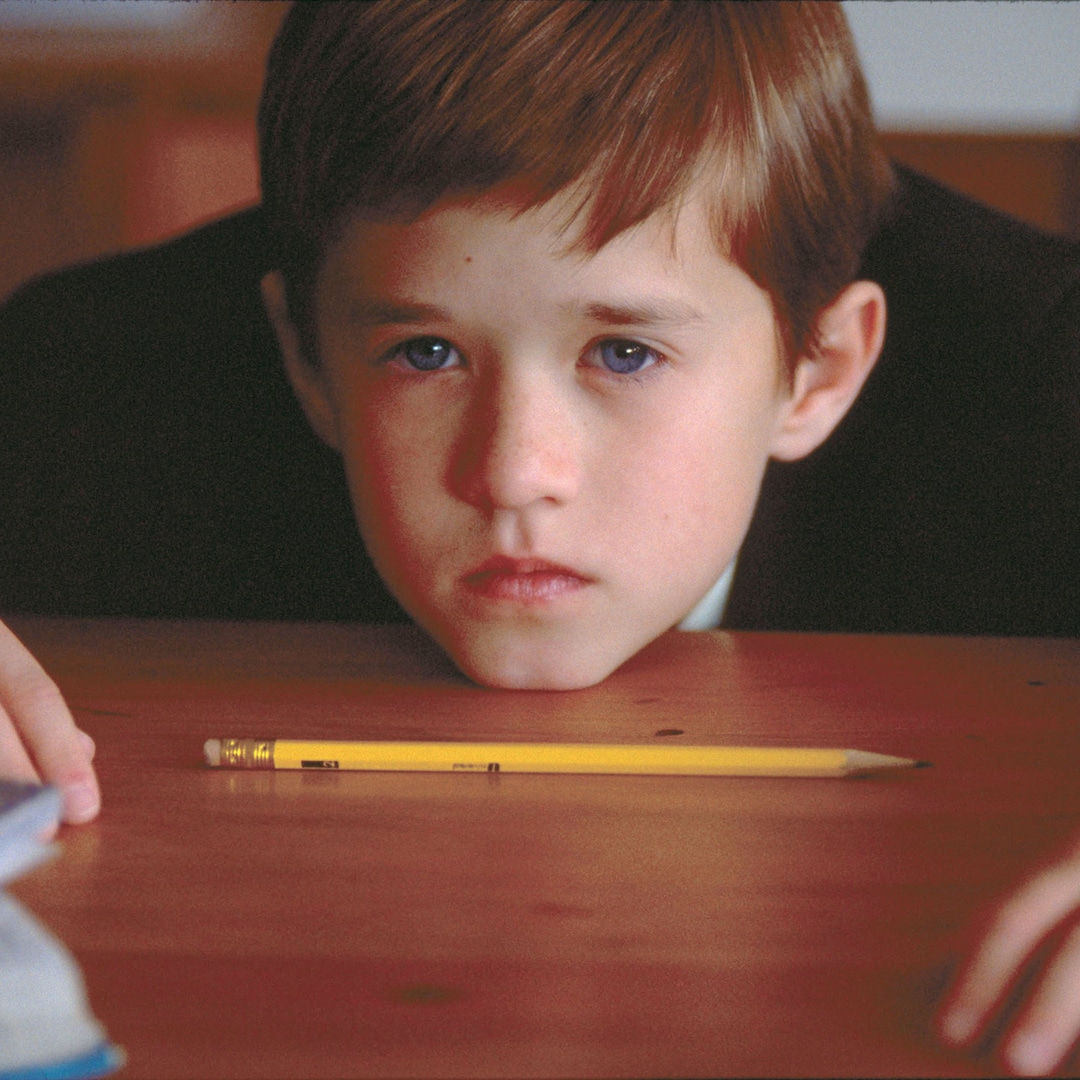Dutch voters head to the polls next week for a knife-edge election that will transform the country’s political landscape, with surveys showing the race is too close to call.
After Mark Rutte’s record 13 years at the helm, the Dutch appear poised to elect either their first woman PM or a crusading anti-corruption campaigner who only formed a party a few months ago.
“Anyone who says they know who is going to win this election is lying through their teeth,” political analyst Julia Wouters told AFP.
What does seem sure however is that a new face will be leading the Netherlands, the EU’s fifth-largest economy that punches above its weight in Europe and the world stage.
Replacing Rutte as head of the centre-right VVD party is Dilan Yesilgoz, a 46-year-old born in Turkey who arrived in the Netherlands as a young asylum seeker and who now wants to drive down immigration.
“I came as an eight-year-old refugee to this country and I know what it means to seek freedom and to seek safety and security,” Yesilgoz told AFP at a recent rally.
She said the influx of asylum seekers, plus international workers and students, was now “way too high”.
“We need to lower that number in order to also have a safe space for true refugees,” she added.
A media-savvy campaigner who keeps her Instagram followers entertained with pictures of her dogs, Yesilgoz is a constant presence on Dutch political talk shows.
But critics say she has struggled to articulate clear policies and explain how she would govern differently from the scandal-hit Rutte.
“The main challenge… is the perception that the party’s campaign is devoid of any substance,” Sarah de Lange, professor of politics at the University of Amsterdam, told AFP.
“Yesilgoz emphasises that they will do things differently, without going into detail what the key measures will be.”
Neck and neck with Yesilgoz’s VVD is a completely new party, the New Social Contract (NSC) founded by charismatic whistle-blower and political iconoclast Pieter Omtzigt.
The 49-year-old polyglot, educated in Britain and Italy, has sparked a political earthquake with his drive to clean up Dutch politics.
“We’ve had many political failures over the last few years in the Netherlands,” he told AFP in an interview.
“Our oversight has been sloppy… and in order to fix this we need reforms, including a partial reform of the Dutch state,” added Omtzigt, who also takes a hardline stance on immigration.
Omtzigt is known for fighting corruption at home and in Europe, but voters face a huge question mark: he has said he does not want to be PM if his party wins.
“To me it’s secondary who becomes prime minister or even a minister,” he said, not ruling out appointing someone as PM not even on the NSC voting list.
Political analyst Wouters said that for many Dutch, Omtzigt was “a sort of Messiah” on a mission to reform the Netherlands.
“He’s basically a national hero, but a lot of people don’t know what he actually stands for,” she said.
Polling just behind those main two is former European Commissioner Frans Timmermans, who championed the EU’s Green Deal and heads a joint Green/Labour coalition.
The far-right PVV of Geert Wilders is also in the mix. Support for his anti-immigrant, anti-EU message has been steady and crucially, he has won Yesilgoz’s agreement for a potential coalition.
A farmers’ party (BBB) that emerged from protests against measures to curb nitrogen emissions and which scored an impressive victory in Senate elections earlier this year appears to have run out of steam, polls suggest.
Voters say the main issues are immigration, a housing crisis, healthcare, and living standards.
But political reform is also key, playing into Omtzigt’s hands.
“The most important issue for many Dutch voters at the moment is how we are governed,” said Wouters.
The November 22 election will usher in a long period of negotiations between parties to form a workable coalition, with every one of the parliament’s 150 seats crucial.
The final days will be critical, said Tom Louwerse, political science professor at Leiden University.
“Ten to 15 percent of voters only decide on election day. Some 30 percent make their minds up a few days before.”
AFP

AFP

AFP







